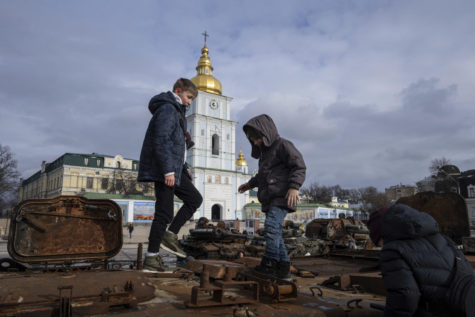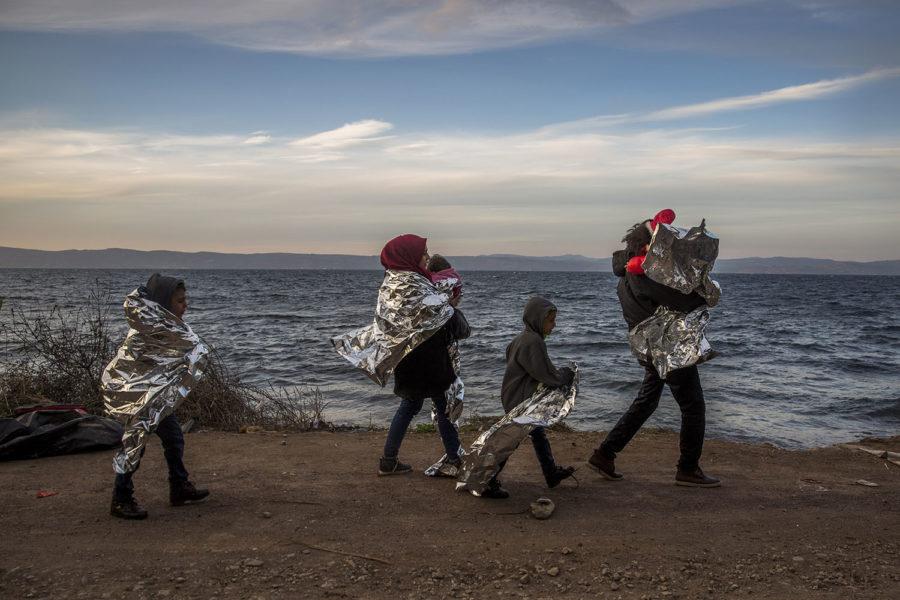TCU and Pulitzer Center host conversation on Ukrainian refugees in Dallas/Fort Worth
A Syrian family covered with thermal blankets walk after they arrived from Turkey at the Greek island of Lesbos, Tuesday, Oct. 27, 2015. (AP Photo/Santi Palacios)
Published Apr 18, 2023
The Ukraine-Russian war has displaced 8 million of the 89.3 million people reside in Ukraine. The war has turned into a global refugee crisis. “The refugee crisis we are witnessing at the moment is the worst refugee crisis we have experienced,” said Amie Ferris-Rotman, a Pulitzer Center journalist. Most Ukrainian refugees are fleeing into Europe, but some are calling North Texas home. Journalists, professors and families gathered together on Friday afternoon for a discussion about Ukrainian refugees in the DFW area. This year’s TCU Journalism & Pulitzer Center event highlighted Children in Global Refugee Crisis. The moderated conversation connected journalists, host families and refugees to share their experiences. “Children are always missing loads of family members or perhaps they are in a different European culture,” Rotman said. Rotman told a story about a three-year-old girl she met in London with her mother and three sisters who missed their father. She described the family’s sadness and worry for their father, who was still in Ukraine. Many men have been forced to stay in Ukraine to help in the war effort. For mothers, this information is hard to communicate with their young children that may not understand. Children refugees are living in a foreign place with a broken family and struggle to receive proper education. 



